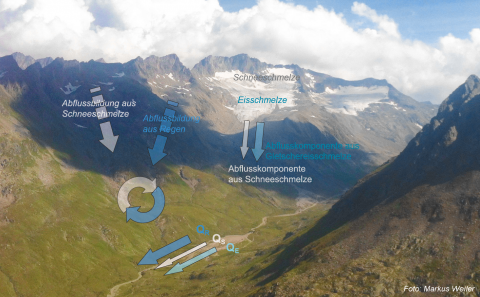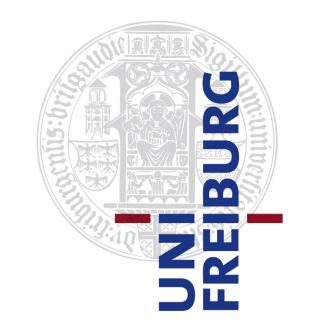
***********Final report ASG2 here available.*********
The streamflow regime of the Rhine (seasonal distribution of streamflow) is strongly influenced by meltwater. Therefore, there is considerable interest to know how the streamflow components of snow and glacier melt will change due to global warming and climate change.
The CHR project `The snow and glacier melt components of the streamflow of the River Rhine and its tributaries considering the influence of climate change’ (ASG-II) will detect possible future developments of streamflow regimes and low flows in the Rhine basin by explicitly modelling the streamflow components resulting from input of rain(liquid precipitation), from snow melt and from glacier ice melt. The focus is on the effects of climate change on low flows in the Rhine.
The research project is a second phase following the earlier project ASG I. Within this project a combination of analyses of diverse meteorological, glaciological, and hydrological data and simulations with a specifically developed model chain was used to model and analyse the streamflow components from different parts of the Rhine basin over the period 1901-2006. The simulations showed among other results that during some late summer low flow events in the past glacier ice melt contributed significantly to river flow in the Middle and Lower-Rhine. Further results are summarized in the following project reports:
- Please find the synthesis report on this CHR website under "Publications"(20 pages, 5 MB)
- Please find the full report on this CHR website under "Publications" (151 pages, 20 MB)
- Further publications within the context of this project; please see the project page at University of Freiburg
The second phase of the research project has the following objectives:
- Extension of the simulations beyond the year 2006 until 2015, also as reference simulation for climate scenarios;
- Application of future climate scenarios based on an ensemble of state-of-the-art climate model output,
- Development and simulation of hypothetical stress-test scenarios, such as extreme low flow events and long-term scenarios, for example the streamflow situation in times without glaciers in a warmer climate,
- Test and evaluation of possible approaches to improve the representation of hydrological processes in the models used, especially concerning the snow cover and the routing of the streamflow components in the river channel network,
and
- Investigation and model changes to assess the potential influence of reservoir management in the alpine part of the catchment.
A focus lies on analyzing changes of the snow melt component.


